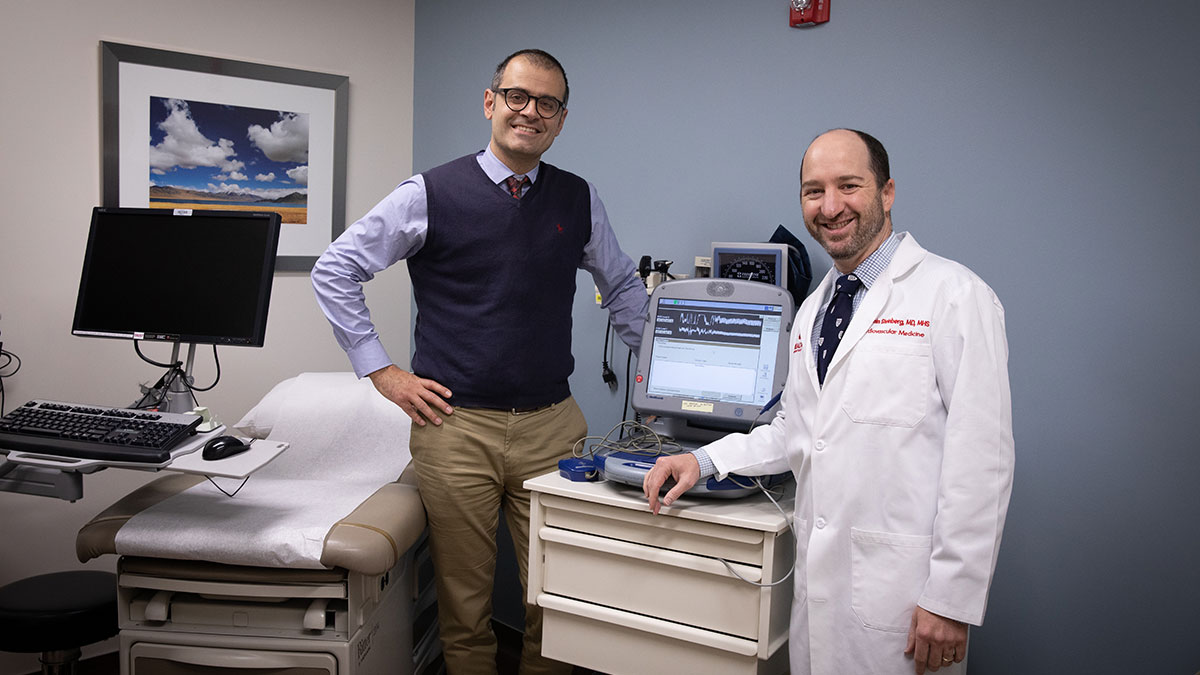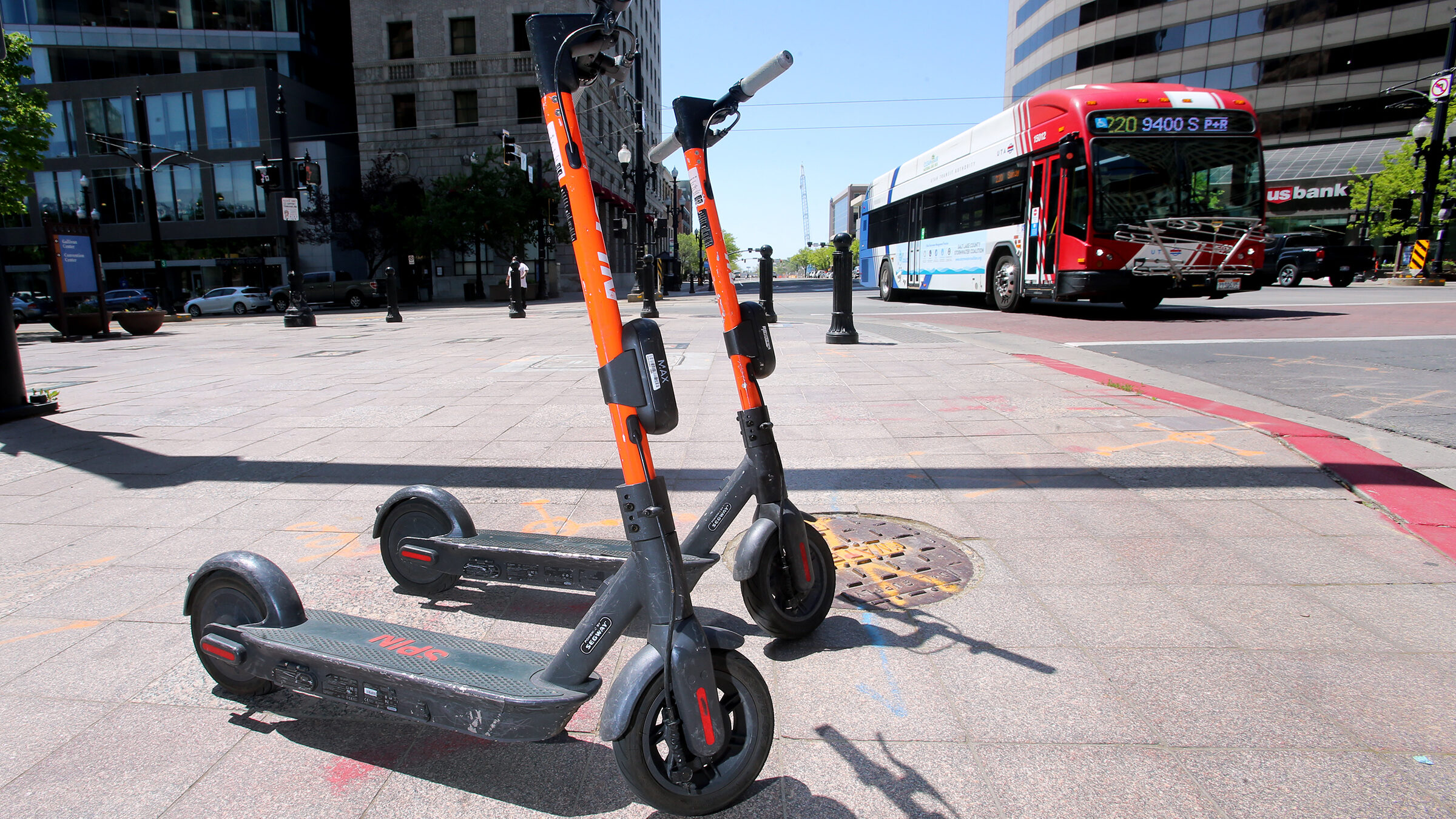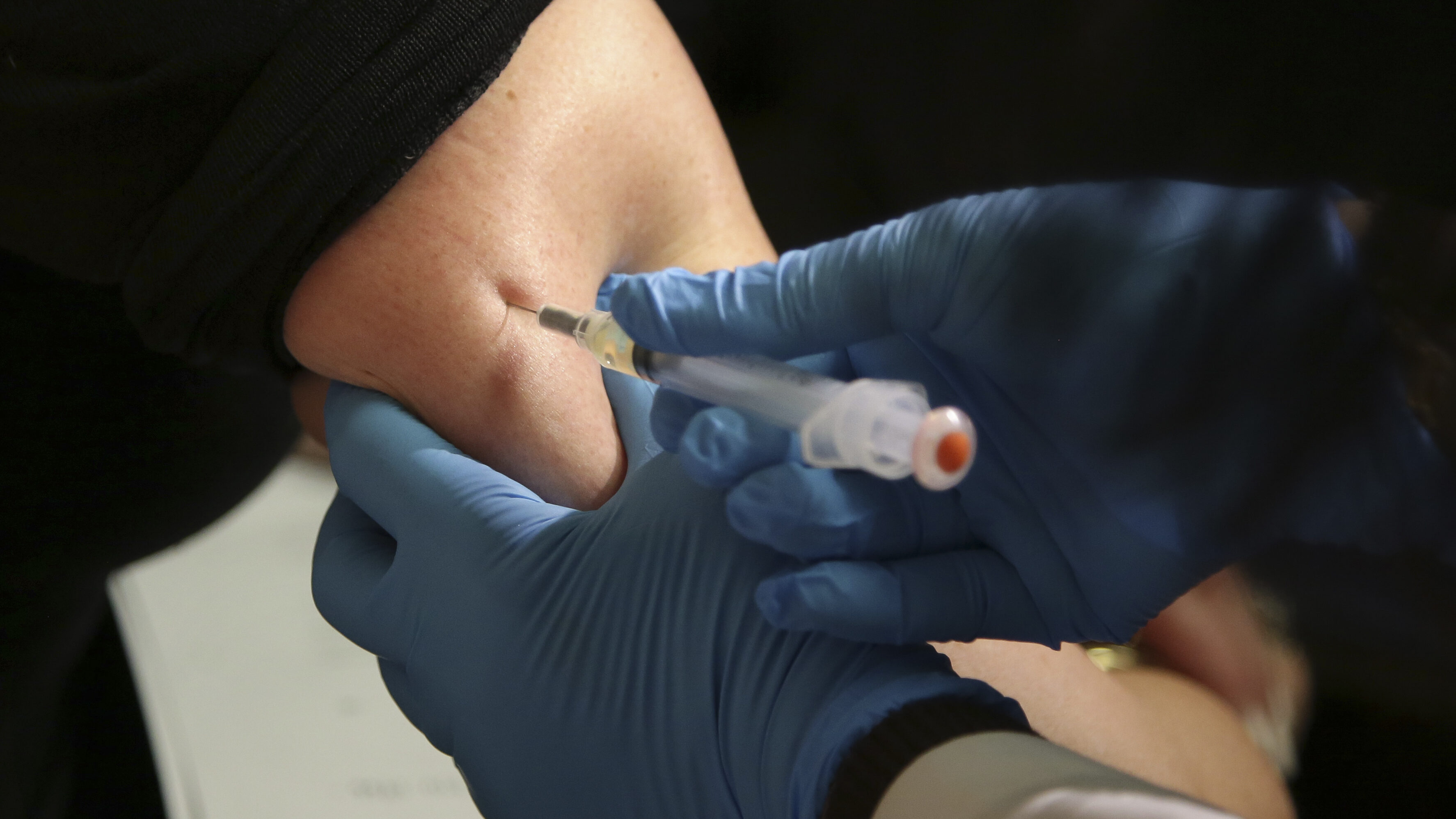Study finds smartwatches can interfere with implantable cardiac devices
Feb 22, 2023, 5:00 PM

University of Utah electrical and computer engineering assistant professor Benjamin Sanchez Terrones, left, and U associate professor of medicine Benjamin Steinberg are pictured. (Dan Hixson)
(Dan Hixson)
SALT LAKE CITY — The University of Utah has released a new study with findings that those who wear implantable cardiac devices like a pacemaker should avoid wearing smartwatches because interference is possible.
According to a press release from the U, for a small group of people, wearing smart watches could not only prove risky but “deadly”.
More specifically, smart devices like Samsung Galaxy watch 4, Fitbit smart scales, or Moodmetric smart rings are in question. These findings are according to U of U Electrical and Computer Engineering Assistant Professor Benjamin Sanchez Terrones and Associate Professor of Medicine Benjamin Steinberg.
Their study was published in the newest edition of the scientific journal, Heart Rhythm.
Sensing technology
According to the study, smartwatches have a sensing technology that could interfere with cardiac devices, known as CIEDs. CIEDS are things such as pacemakers, implantable cardioverter defibrillators, and cardiac resynchronization therapy devices.
The sensing technology in the watches emits a very small current of electricity into the body, which the study says they measure in microamps. The current flows through the body to get responses. Those responses measure things like the user’s skeletal muscle mass, fat mass or stress levels.
The team of scientists found that those currents can interfere and “sometimes confuse” CIEDs into operating incorrectly.
“This study raises a red flag,” said Sanchez Terrones in the U’s press release.
For example, a pacemaker sends small electrical impulses to the heart when it is beating too slowly. The study points out that the tiny electrical current from a watch could trick the heart, allowing it to think it is beating fast enough. This would prevent the pacemaker from doing its job.
Additionally, something like an ICD, acts as both a pacemaker and a shock to the heart to restore a regular heart rhythm. The U of U study said a watch with bioimpedance could severely interfere. “Trick[ing] the defibrillator into delivering the patient an unneeded electric shock, which can be painful.
“The scientific community doesn’t know about this,” he says. “No one has looked at whether this is a real concern or not,” said Terrones.
“We need to test across a broader cohort of devices and possibly in patients with these devices,” Steinberg said.













